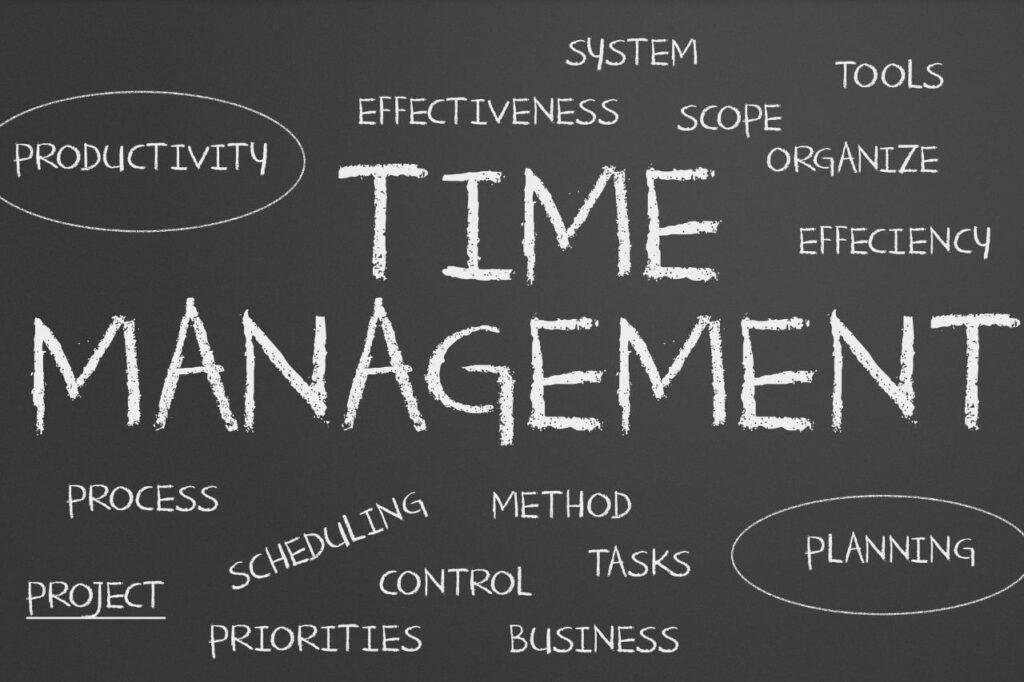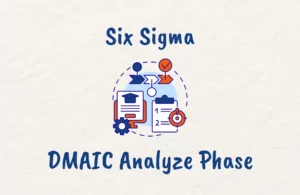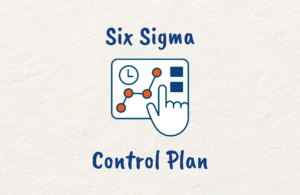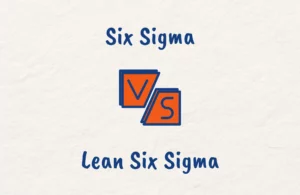In today’s fast-paced business environment, organizations are constantly looking for ways to increase efficiency and achieve better outcomes.
One way to achieve this is by utilizing project management methodologies, such as Scrum and traditional project management.
However, many people are unaware of the differences between the key roles involved in these methodologies, such as Scrum Masters and Project Managers.
As a Project Manager who transitioned into a Scrum Master, I understand that the lines between both of these roles can appear blurred and we have a lot of Scrum Masters acting like Project Managers.
In this blog post, we will explore the key differences between Scrum Masters and Project Managers to help you better understand the role each plays in project management and product development.
What is a Scrum Master?
The Scrum Master is a key role in the Scrum methodology, responsible for facilitating the Scrum process and ensuring that the team adheres to the Scrum framework.
Scrum has different roles that collectively drive the development process within the framework. You can read more in this Scrum Master 101 tutorial.
The following are the key responsibilities of a Scrum Master:
1. Facilitating Scrum Ceremonies
A Scrum Master is responsible for facilitating the Scrum ceremonies or events. The ceremonies are Sprint Planning, Daily Scrum, Sprint Review, and Sprint Retrospective.
As a Scrum Master, irrespective of whether you’re present at these events or not, it’s your responsibility to ensure that they hold at the appropriate time and follow the time-box.
2. Ensuring Adherence to Scrum
Whether the team is used to Scrum framework and practices or not, to use Scrum properly and reap its awesome benefits, you have to actually do Scrum.
As a Scrum Master, it’s common to find teams who given the chance would like to just “do their thing”.
It’s your responsibility as the Scrum Master to ensure the team understands the Scrum framework through coaching, and ensuring that they adhere to it.
3. Removing Obstacles
The concept of Scrum is for teams to be self-managing.
The Product Owner manages the Product Backlog and prioritizes the Backlog items, and the Developers select items from the Backlog and deliver the Product Increment.
Between all these, there are inevitable obstacles and impediments that come up and can distract the team from focusing on their responsibilities.
As a Scrum Master, you need to make sure these obstacles don’t derail the team.
4. Promoting Continuous Improvement
The idea of Scrum is to improve continuously using knowledge gained. It’s expected that as more sprints are undertaken, the team’s processes and the product should get better incrementally.
As a Scrum Master, you need to impact this mentally into the consciousness of the team members and enable them to identify areas for improvement.
5. Promoting Transparency
Transparency is vital in Scrum to enable adaptation. As a Scrum Master, you have to promote this transparency by ensuring that all aspects of the Scrum process are visible and accessible to the stakeholders.
Also, you’re to ensure that the product backlog is transparent and that the progress of the Scrum Team is visible to everyone.
6. Coaching Scrum Team
As the Scrum Master, you are like the guardian of the framework within the team. The Product Owner and the Developers may not be very familiar or used to using the framework.
To practice Scrum properly and reap the benefits, you need to continuously coach the Scrum Team and for help them to understand the Scrum framework and the Agile principles.
Read Also: Extreme Programming (XP) vs Scrum
What is a Project Manager?
For all the buzz around Agile and its methodologies, lots of projects still work best with the traditional project management or waterfall approach.
Like in Scrum, traditional project management has roles, and Project Manager is one of them.
As a project manager, you’re responsible for managing the entire life cycle of the project, and ensuring the scope of the project is delivered.
The following are some key responsibilities of a Project Manager:
1. Project Planning
As a Project Manager, it’s your responsibility to define the project scope based on the business need that instigated the project.
From this project scope, you are to create a project plan for delivering the project scope and requirements, and ensuring that all project tasks are properly scheduled and allocated.
2. Resource Management
Managing projects requires the acquisition, allocation, and management of resources. These resources include human resources, equipment, and materials.
As a Project Manager, this responsibility falls to you and is key to managing projects successfully.
3. Budget Management
The project cost is one of the 3 key project constraints also known as the triple constraint. Money management is important.
As a project manager, it’s your responsibility to ensure the project budget is feasible, and that the project is managed successfully to deliver the desired quality within the budget.
4. Risk Management
Risks are inherent in projects, and managing them proactively sets the tone for project success.
As a project manager, you need to start identifying potential risks from the initiation of the project and develop plans on how to handle them.
5. Stakeholder and Communication Management
It’s often and rightly said that communication is the backbone of project management. By estimation, as a Project Manager, you spend up to 80% of your time communicating with the project stakeholders.
You need to create plans for regular communication via status updates and progress reports, and managing the relationship with the stakeholders, including team members, customers, and upper management.
6. Quality Management
While it’s important to complete a project according to the set-out scope, schedule, and budget, this counts for naught if it doesn’t meet the quality standard.
When managing a project, quality is to be built into its processes and end product.
As a project manager, one of your key responsibilities is ensuring the project is delivered according to the required quality level, and that quality standards are consistently met throughout the project.
7. Change Management
While the Agile methodology is change-driven, the traditional project management methodology uses a plan-driven approach, and the expectation is that the project is managed according to the plan as much as possible.
Notwithstanding, changes are inevitable no matter the approach employed.
What you need to do as a Project Manager is to manage these changes to the project scope, schedule, or budget, and ensure that all changes are properly documented, approved, and all stakeholders are carried along.
8. Team Management
Aside from managing the project work, another key responsibility of a Project Manager is the management of the project team.
This involves leading and motivating the team, and ensuring that team members receive adequate training and support.
Read Also: The Project Coordinator vs Project Manager: Who Does What?

Scrum Master Skills
To be an effective Scrum Master, you need a certain skill set under your belt. These include:
1. Agile Knowledge
As a Scrum Master, one of your responsibilities is coaching your team and the organization in Agile and Scrum knowledge.
You can’t give what you don’t have, and if you don’t have this knowledge, it’s virtually impossible to pass it on to the team.
You need to have a thorough understanding of the principles and practices of Agile methodology, with a focus on Scrum.
2. Facilitation Skills
A great part of your time as a Scrum Master will be spent on facilitating the Scrum ceremonies or events.
To be an effective Scrum Master, you have to be able to facilitate productive discussions and decision-making among team members, as well as assist in conflict resolution when necessary.
3. Communication Skills
Skills for effective communication are essential as a Scrum Master because you must communicate effectively with team members, stakeholders, and customers.
4. Leadership Skills
As a Scrum Master, your team is only as strong as you are.
You must be able to set a good example, inspire and motivate team members, and ensure that the team works well together in order to achieve desired success.
5. Problem-Solving Skills
In every project, problems will definitely come up whether they’re minor or major.
You need to be able to identify and address roadblocks to progress, as well as collaborate with the team to find innovative solutions as a Scrum Master.
6. Adaptability
The use of the Scrum framework requires adapting to feedback. You must be able to adjust the Scrum process in response to changes in the project and team.
7. Technical Knowledge
While you don’t really need technical knowledge as a Scrum Master as the Developers are the ones that do the work required to deliver a working product, having it is an advantage.
A good understanding of software development concepts and processes will help you understand the technical challenges that the team faces.
8. Coaching Skills
As a Scrum Master, you will get to work with different teams, and chances are high that not all of them will be conversant with the Agile methodology and Scrum framework.
You must be able to coach and mentor team members on Scrum while also assisting them in growing and developing their skills.
9. Servant Leadership
A Scrum Master isn’t your typical idea of a manager coming to tell the team what to do and all.
As a Scrum Master, you should have a servant-leadership mindset, putting the needs of the team and the project ahead of their own.
Your primary responsibility is to help the team perform optimally, and ensure that the environment is available for them by providing guidance and removing obstacles that could hinder their progress.

Project Manager Skills
For effective project management, these are some of the skills that you need to have:
1. Planning and Organizational Skills
When it comes to planning and organizing projects, you need to be able to break down complex tasks into smaller, manageable steps and envisage a roadmap to accomplishing the tasks.
2. Leadership
Leadership is crucial for a project manager, and you should have strong leadership skills. You must be able to motivate and manage a team effectively.
3. Effective Communication
This is the bulk of your work as a project manager as earlier iterated. You should be able to communicate effectively with team members, stakeholders, and customers.
4. Problem-Solving Skill
Obstacles are a part of any project, but you need to be able to identify and address them to keep the project on track. And to do that, you need to have excellent problem-solving skills.
5. Risk Management
Risks are always a part of any project, but as a project manager, you need to be able to assess and manage these risks. And to be prepared, you must develop contingency plans as needed.
6. Budget Management
Budget management is one of the key responsibilities of a Project Manager. It’s important that you have a strong understanding of project finances, and be able to manage the project budget effectively.
7. Negotiation
Negotiating with stakeholders and suppliers is a big part of the job, and you need to be able to do that effectively to keep the project on track.
8. Adaptability
Being flexible is important in a project manager, as you need to be able to adapt to changes in the project and adjust the project plan as needed.
9. Technical Knowledge
It’s helpful to have a good understanding of relevant technical skills and processes, as you need to understand the technical challenges faced by the team.
10. Attention to Detail
Paying attention to detail is a must-have for a project manager, as you need to ensure that all project tasks are properly scheduled and allocated, and that the project remains on track.”

Scrum Master vs Project Manager
Now that we have glossed over the Scrum Master and Project Manager roles, responsibilities, and skills, let’s take a look at the ways they differ from each other.
A lot of Project managers when transitioning from waterfall to Agile often assume that a Scrum Master basically does the same thing that they do with their teams. This isn’t exactly correct.
From the highlighted responsibilities and skill sets of these roles, you probably already have an idea of the differences between them. These are further highlighted below.
1. Skill Set
One key difference between a Scrum Master and Project Manager is the difference in the skill set required for the individual roles.
While there’s some overlap, there are core skills required to be a Scrum Master, and those required for a Project Manager.
Key skills required for a Scrum Master include servant leadership, coaching, facilitation, mentoring, and Agile skills.
For a Project Manager on the other hand, skills include management of project constraints including scope, schedule, budget, risk, quality, and resources, communication, stakeholder management, and planning.
2. Focus
When working on projects, the focus of the Scrum Master and Project Manager aren’t quite the same thing.
In a nutshell, while the Scrum team is committed to delivering value, the Scrum Master is focused on facilitating the Scrum process and ensuring adherence to the framework.
While these efforts are geared towards delivering high-quality results within the Scrum framework, the responsibility for the result is on the Scrum team.
The responsibility of a successful project lies on the Project Manager, and the focus is on planning, executing, monitoring and controlling, and closing projects.
3. Decision-Making
There are decisions to be made each step of a project and this responsibility falls on different roles depending on the methodology being used.
For Agile projects using the Scrum framework, the Scrum Master plays a supportive role in decision-making, helping the team to make decisions and resolve conflicts.
Project Managers play a more directive role in decision-making, as they’re responsible for making decisions that impact the success of a project.
4. Stakeholder Interaction
Scrum Masters interact with stakeholders in a supportive capacity, helping to ensure that their needs and requirements are understood and incorporated into the Scrum process.
Project Managers interact with stakeholders in a more directive capacity, as they are responsible for communicating project status, managing stakeholder expectations, and ensuring that project goals are met.
5. Autonomy
Scrum Masters are responsible for facilitation of the Scrum process and happen to have a high level of autonomy.
On the other hand, Project Managers are confined within set constraints and have less autonomy.
Conclusion
Since the Project Manager role doesn’t exist in Scrum according to the Scrum Guide, it’s understandable that lots of people are unsure of how a Scrum Master differs from the traditional Project Manager role.
Hopefully with this well-articulated post, you should be able to understand the difference in the roles, responsibilities, and skills, and the best project or organizational fits for each of them.






Great explanation about scrum master and project manager. Very useful article keep up the good work.